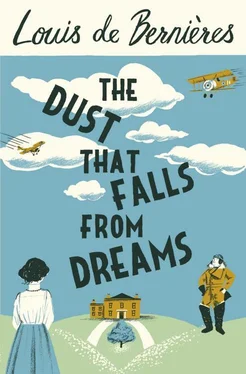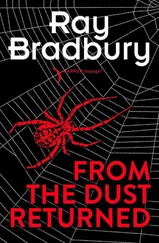‘I suppose you know what the soldiers call us?’
Rosie laughed. ‘The Very Adorable Darlings.’
‘Have you looked at the rules? They do everything they can to make sure we can’t have any fun. That must be the reason our uniforms are held together by dozens of pins.’
‘How can you talk of fun?’ demanded Rosie. ‘There’s no fun any more. It’s wrong.’
‘I am going to have fun,’ said Ottilie. ‘I don’t have your principles. You know, you are a bit of a puritan, Rosie.’
‘It’s the way I am,’ said Rosie.
‘Has Christabel told you what she’s going to do?’
‘No. Is she going to do something?’
‘She wants to join the Snapshot League.’
‘How perfectly wonderful! She hasn’t got a camera, though.’
‘She’s just ordered one. She can even develop the film in the attic.’
‘Mama isn’t going to like her going to strange people’s houses in all sorts of horrid places.’
‘You know Mama. She’s actually quite a sport, underneath. She says the first thing that comes into her head, which is usually quite shockingly crass, and then arrives at something more thoughtful later.’
‘Sophie’s already started to knit a pair of mittens,’ said Rosie, ‘with an elephant embroidered on the back.’
The following morning, whilst they were eating their smoked haddock and poached egg at breakfast, Mrs McCosh announced her intention to contribute to the war effort by having Belgian ladies to tea, and taking fruit to the Cottage Hospital. In the wake of this portentous news, Millicent came in with a letter for Rosie. She took it, and instantly knew the handwriting. She let out a small cry and began tearing at the envelope with trembling hands. The others watched her, their forks suspended midway to their mouths.
Rosie read the letter, turned it over and read it again.
‘My darling Rosie and dearest Pal,
Well, old thing, it looks as though I have bought a blue ticket home, having been here for just a couple of months …
She scanned and rescanned the phrases ‘… I seem to have come through relatively intact … Get someone to read the banns, I’m coming home … Your best friend and best husband-to-be …’
She jumped up, crying, ‘He’s alive! He’s alive! He’s coming home! He’s only been wounded! He isn’t dead! He isn’t dead!’ She began to laugh, but it was laughter that was strangely horrible and hysterical.
Hamilton McCosh reached out and took the letter from her. He looked at it briefly and handed it back. ‘Look at the date on it, Rosie bairn,’ he said softly. ‘The telegram about the death was several days later than this.’
Rosie stared at him for a moment, and quite suddenly sat down and fell silent. Her father put his hand on hers, and eventually she looked up and announced angrily, ‘He said he would come back, even if he was dead.’
She threw her napkin on the table and ran from the room. Upstairs in her bedroom she went down on her knees and groped frantically under the bed. She pulled out her plaster madonna and child, unwrapped it, sat on her bed and hugged it to her chest, rocking and keening.
Downstairs, Sophie said, ‘Do you think perhaps that one of us should go to her?’ and Hamilton McCosh said, ‘I’ll go. I’ll give it half an hour, and then I’ll go.’
‘That’s very good of you, dear,’ said his wife, who had been hoping to be spared.
Upstairs, Rosie was startled by a knock on the door. ‘Don’t come in!’ she cried, and Millicent’s voice came back: ‘I’ve brought you a cup of tea, miss. I’ll leave it on the table on the landing.’
‘Thank you,’ said Rosie, choked a little further by this unsolicited act of kindness. She heard the voice of Ash, saying, ‘Even if I am dead I will come back, I’ll find a way to be with you.’ For the very briefest moment, she thought she caught the manly scent of his cologne.
‘Ash?’ she said, looking up, but then she shook her head and sighed. She stared into the face of her plaster madonna, and then into the eyes of the somewhat adult-looking baby Jesus. She put the statuette down, and bowed her head.
1
The Grampians
To His Grace, the Duke of Devonshire
15 March 1915
Your Grace,
I am writing to you because I understand that you have given over the ground floor of Devonshire House to the Red Cross, and am therefore hoping that you will be able to pass on this letter to the relevant authority.
I am seeking war work and am hoping that you may be able to assist me. I have no nursing qualifications, but feel that I may be of considerable use as a nursing assistant of some sort. I have set my heart on becoming a VAD. I am good with people who are suffering, I am prepared to work hard, and it is too much to bear having to stay at home at a time like this and not do anything important. My fiancé was killed in February, and you will understand that I feel I have a personal obligation to him to pull my weight, as he did, and to alleviate the sufferings of those who are suffering as he did.
I am not married, have no children, am of good reputation, and of the Anglican faith. I have the permission of my father to volunteer.
I am also writing to St John’s Ambulance Association at Clerkenwell, to the War Office and to the International Council of Nurses in Oxford Street, in the hope of maximising my opportunities.
Thank you, Your Grace, and forgive me if I have not employed the correct terms of address. At the time of writing my mother is staying with friends in Bromley, and she is our expert on matters of form.
Yours respectfully,
Miss Rosemary McCosh
2
Devonshire House
18 March 1915
Dear Miss McCosh,
Thank you for your letter, which I have had the pleasure of passing on to the Red Cross.
I wish you the very best of luck, and every success in your patriotic and compassionate quest.
I remain yours etc.
Devonshire
THERE WAS A violent knocking at the door, and when Millicent answered it she saw, standing in the porch in a state of considerable distress, the young maid from the Pendennis house next door.
‘Is Miss Rosie in?’ asked the maid. ‘I’m all alone with the mistress, and she’s carrying on something terrible. Can you get Miss Rosie?’
Accordingly, Rosie found herself in the Pendennis dining room, where Mrs Pendennis had plumped herself down on one of the chairs and was weeping inconsolably. There was an abominable smell in the room, and on the dining table was a package whose brown paper, sealing wax and string had been opened carefully to reveal its contents.
Mrs Pendennis gestured towards the table and then continued to weep with her hands over her eyes. Rosie approached and took up the objects, one by one.
They were: Ash’s fob watch, the one that had been given to him by his father on his twenty-first birthday; a bundle of Rosie’s letters, tied up with string; another bundle of letters, from friends and family, also tied up with string; a Parker pen, with gold nib, a gift from his mother at Christmas; a water-stained notebook which had served as a diary, full of his writing, in pencil, which was beautifully neat at the beginning, and almost illegible by the end; a creased brown leather wallet embossed at one corner with ‘AHP’, containing a ten-shilling note, a ticket stub, and the handwritten words to ‘Gilbert the Filbert’ on lined paper, folded into four; The Man of Property by Galsworthy, in terrible condition, warped by damp and smeared with yellow mud, a tram ticket at page 43 serving as a bookmark; an unopened packet of Craven ‘A’ cigarettes, presumably for use as currency. There was a string of beads from a Christmas cracker, and a lock of Rosie’s hair in a Three Nuns tobacco tin. There was a squashed bullet, and an extraordinary souvenir in the form of two bullets which had intersected in flight, making a perfect St Andrew’s cross. All of these things seemed to radiate Ash’s personality, as if he were present in what he had left behind.
Читать дальше












